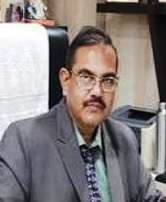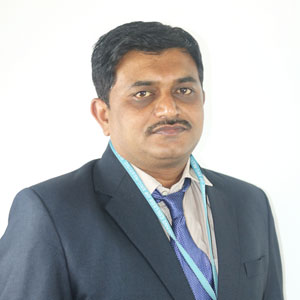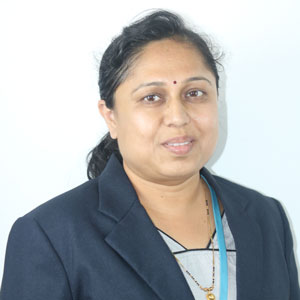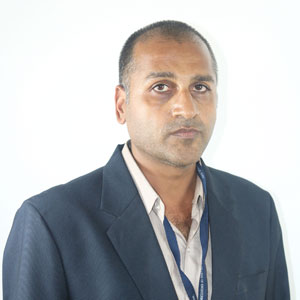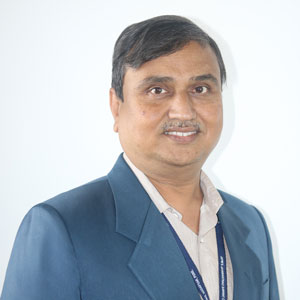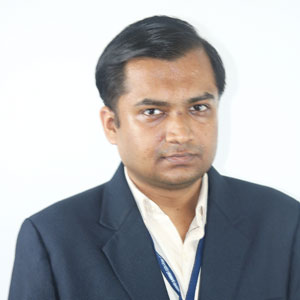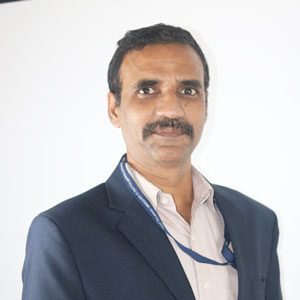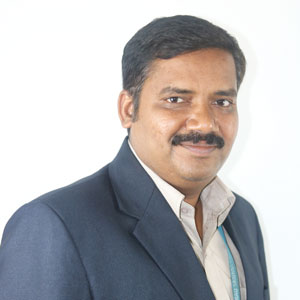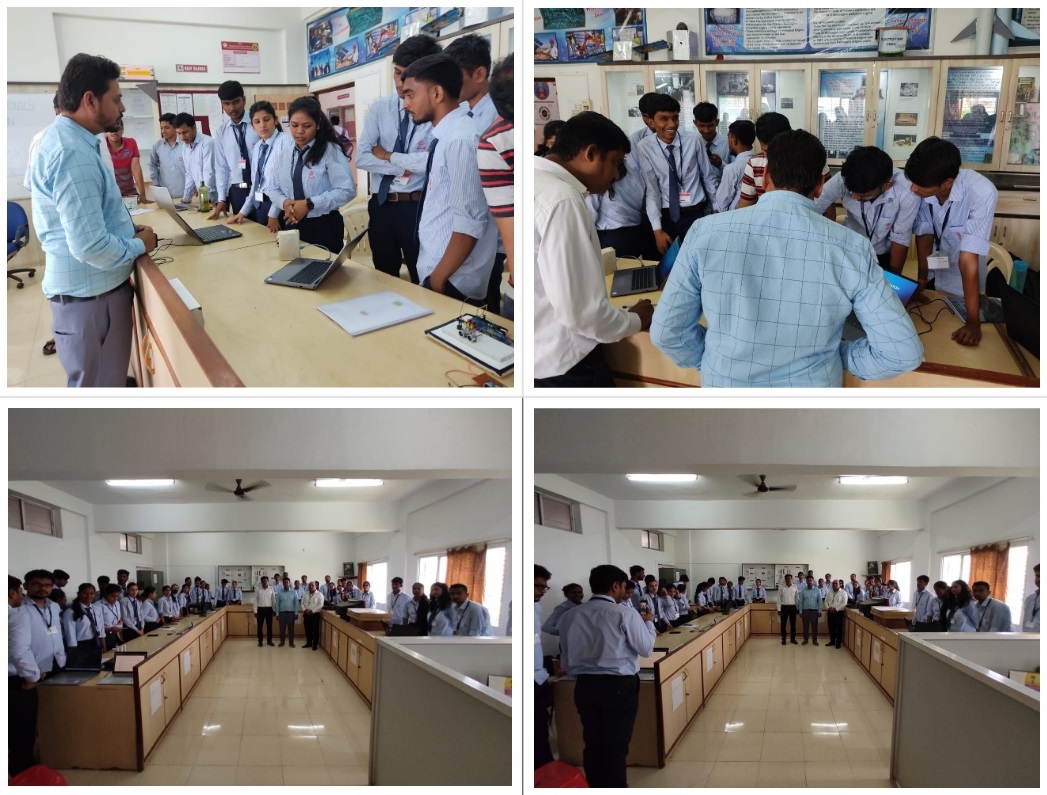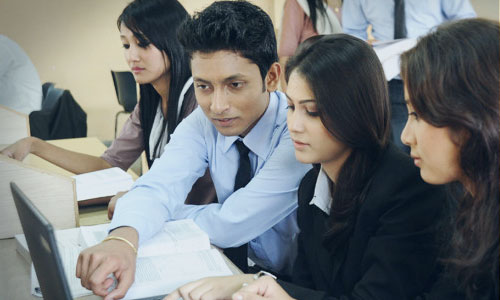Electronics & Telecommunication
The E&TC department has been started with an intake capacity of 60 students in June 2004. Now current intake capacity is 120 students.
The faculties engage themselves in routine teaching in classroom and experimentation in laboratories throughout the semester.
In additions, a good number of research publications in Journals and National & International conference’s proceedings have been published.
Quite a good and advance instrumentation has been observed e.g. logic analyzer, spectrum analyzer, DSO etc. in many of laboratories.
The department has ‘Electronics students association’ (TESA) in which additional curricular activities for overall development of student is observed.
The department has well qualified, young, enthusiastic, experienced and dedicated staff.
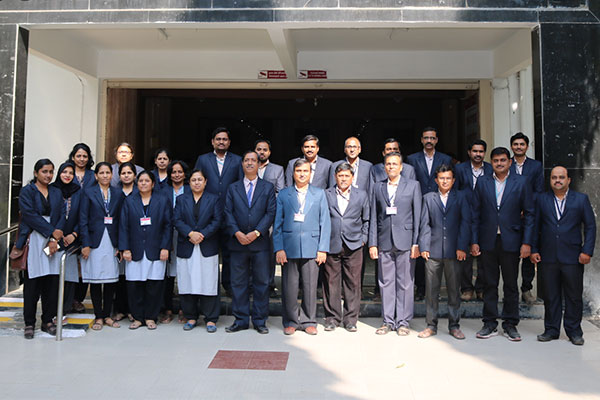
Vision
To be recognized as a centre for human resource development in the field of Electronics & Telecommunication engineering.
Mission
M1: To imbibe core and professional competencies in students by providing conducive academic environment.
M2: To provide platform for innovations and entrepreneurship by undertaking real time problems.
M3: To nurture an ethical and societal responsibilities amongst the learner for global environmental sustainability.
M4: To promote students for higher studies by adapting cutting edge technology.
Program Educational Objectives (PEO)
PEO1: Graduates shall have core technical competency to address the real world issues in the domain of Electronics and telecommunication engineering, receptive to emerging trends.
PEO2: Graduates shall have ability to develop sustainable solutions to satisfy diversified needs of the society.
PEO3: Graduates shall engage in lifelong learning with socio economic responsibilities in multi disciplinary domain.
Program Specific Outcomes (PSO)
PSO1: To gain proficiency in designing the communication systems for engineering applications.
PSO2: To apply the knowledge of design and development to the Electronic systems based on VLSI and embedded technology.
PSO3: To integrate automation processes with the support of hardware.
PSO4: To develop software programs for simulation and implementation in the process of solving multidisciplinary engineering problems.
Program Outcomes (PO)
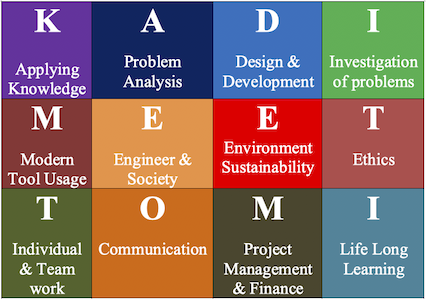
PO1:Engineering knowledge: Apply the knowledge of mathematics, science, engineering fundamentals, and an engineering specialization to the solution of complex engineering problems.
PO2:Problem analysis: Identify, formulate, review research literature, and analyze complex engineering problems reaching substantiated conclusions using first principles of mathematics, natural sciences, and engineering sciences.
PO3:Design/development of solutions: Design solutions for complex engineering problems and design system components or processes that meet the specified needs with appropriate consideration for the public health and safety, and the cultural, societal, and environmental considerations.
PO4:Conduct investigations of complex problems: Use research-based knowledge and research methods including design of experiments, analysis and interpretation of data, and synthesis of the information to provide valid conclusions.
PO5:Modern tool usage: Create, select, and apply appropriate techniques, resources, and modern engineering and IT tools including prediction and modeling to complex engineering activities with an understanding of the limitations.
PO6:The engineer and society: Apply reasoning informed by the contextual knowledge to assess societal, health, safety, legal and cultural issues and the consequent responsibilities relevant to the professional engineering practice.
PO7:Environment and sustainability: Understand the impact of the professional engineering solutions in societal and environmental contexts, and demonstrate the knowledge of, and need for sustainable development.
PO8:Ethics: Apply ethical principles and commit to professional ethics and responsibilities and norms of the engineering practice.
PO9:Individual and team work: Function effectively as an individual, and as a member or leader in diverse teams, and in multidisciplinary settings.
PO10:Communication: Communicate effectively on complex engineering activities with the engineering community and with society at large, such as, being able to comprehend and write effective reports and design documentation, make effective presentations, and give and receive clear instructions.
PO11:Project management and finance: Demonstrate knowledge and understanding of the engineering and management principles and apply these to one’s own work, as a member and leader in a team, to manage projects and in multidisciplinary environments.
PO12:Life-long learning: Recognize the need for, and have the preparation and ability to engage in independent and life-long learning in the broadest context of technological change.
Microprocessor and Microcontroller Lab
Students acquire the practical skills pertaining to design and realize basic and advanced VLSI as well as Micro-Controller based ...
Read More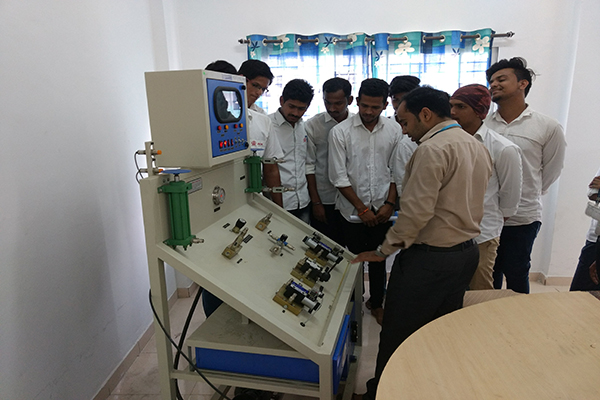
Instrumentation and Control Lab
This lab provides the relevant experimental setup with state of art technology which enhances the learning experience. ...
Read MoreSelf Learning Lab
This lab provides the relevant experimental setup with state of art technology which enhances the learning experience. ...
Read MoreComputer Lab-II
This lab provides basic practical knowledge for developing project using ARM processor. It is also facilitated with DSP boards, C ...
Read More-
Dr. K. N. Barbole
Professor
-
M.E. Power Electronics Ph.D. Electronics Engineering
-
-
Dr. R. D. Kanphade
Principal
-
Ph.D.
principal@jspmjscoe.edu.in
-
-
Dr. S. M. Hambarde
Head of Department
-
M.E.( E&TC), Ph. D. (Electronics)
shaileshhambarde@jspmjscoe.edu.in
-
-
Dr. C. A. Manjare
Professor
-
M.E.( Electronics ), Ph. D. (Electronics)
chandraprabhamanjare@jspmjscoe.edu.in
-
-
Dr. R. K. Navandar
Professor
-
M.Tech(Electronics),PhD(E&TC)
rajeshnavandar@jspmjscoe.edu.in
-
-
Dr. D. B. Salunke
Professor
-
PhD ( Electronics & Communication)
dbsalunke@rediffmail.com
-
-
Dr. R. D. Gawade
Assistant Professor
-
M. Tech ( E&TC Engg), Ph. D. (E&TC)
rohitgawade@jspmjscoe.edu.in
-
-
Dr. V. M. Sardar
Associate Professor
-
M.E.( Electronics ), Ph. D. (Electronics)
vijaysardar@jspmjscoe.edu.in
-
-
Dr. P. A. Kalyankar
Associate Professor
-
M. Tech [Digital Systems], Ph. D. (Electronics)
pratimakalyankar@jspmjscoe.edu.in
-
-
Prof. D. G. Ingale
Assistant Professor
-
M.E.(Electronics), Ph. D. pursuing
devendra.jscoe@gmail.com
-
Objective
1. To work towards practical oriented learning
2. To groom and nurture the qualities of teamwork, leadership.
3. To provide exposure to the public and executives communication
4. To provide co-curricular training and to keep them updated
5. To motivate the students towards core research in the field of E&TC
Benefits
T.E.S.A – E & T C Student Association is mainly initiated to encourage the students, to voice their innovative thoughts and also it acts as an open forum to our alumina. The T. E.S.A of J. S. College of Engineering acts as a bridge between the students and the industry level R&D. We are giving a toast of guest lectures by the experts to promote the ideas in R&D. We learn in two ways, one by reading and the other by the repo with smarter people. We believe in the quote “Never quit! If you stumble, get back up and move closer to your dreams and goals. You can do it!” T. E.S.A functions completely by the students and guided by our caring CARE faculties .We motivate students to be updated to recent trends. T.E.S.A is one of the most efficiently functioning associations in our college.
Expected Outcome
Due to brainy activities at regular a interval which provides a good deal of platform to the students to exhibit their budding thoughts. Academic and professional development & the quality life of students is improved.
Academic Year 2021-22 Farewell

Induction Program-2018
The Induction Program for S.E. 2018 batch and “Teachers day” was held on 05/09/2018 at B-Building 506. The program started at 3:00 pm welcoming all the dignitaries, teachers and the SE students followed up with Saraswati puja by H.OD Dr.C.A.Manjare, Prof.S.M.Hambarde,SE Regular Class Coordinator Prof.S.A.Wakure,Direct SE Class Coordinator Prof.R.D.Gawade,TE Class Coordinator Prof.S.S.Taware and program coordinator Prof. S.V.Malewar. At the beginning Farhan Shaikh and Shivangi Bhat gave welcome speech. Dr. C.A .Manjare was felicitated by TE topper Miss.Anisha Parit . Prof.S.M. Hambarde, Prof. S. A. Wakure, Prof. R.D. Gawade,Prof S.S.Taware, Prof. S.V.Malewar and all teachers were felicitated by TE students. TE Topper student Miss. Anisha Parit addressed on behalf of all the TE students sharing their experience so far and thanking all the teaching and nonteaching staff for their contribution to academics .Also she motivates all SE students for excelling in curricular and extracurricular activities. Dr. C.A.Manjare delivered a speech to address all the SE students for their bright futures.She expressed importance of sincerity and hard work in their carrier.
Events
1. Webinar on “COVID 19 Detection and Diagnosis based on Biomedical Imaging using Artificial intelligence” on 7th August 2021 by Dr. Bhushan D. PatilLead Scientist, GE Healthcare, Bangalore, India. Technical Expert in Medical signal and Image processing

2. Webinar on “Applications of Signal Processing to Speech.” Technically sponsored by IEEE Signal Processing, Pune Chapter on 24/09/2020

3. International Conference on Knowledge discovery in Science and Technology organized at Department of Electronics and Telecommunication, JSPM’s Jayawantro Sawant College of Engineering, Hadapsar, Pune.

4. One week Faculty Development Program on Advances in Automation organized at Department of Electronics and Telecommunication, JSPM’s Jayawantro Sawant College of Engineering, Hadapsar, Pune.
5. The event PROXZI-18 (Poster & Project Competition) conducted at National Level Event Techmanthan-18 on 24th of January 2018 in department of E & TC.
6. The expert lecture was delivered by Mr. Shekhar D. Borse, Founder-RASPI INVENT, Dwarka, Nashik on “Industrial IoT and Raspberry Pi”.
7. Student Group of E&TC along with Prof. P.P. Kalyankar attended & participated in Smart India Hackathon 2017 – Grand Finale at Shri Ramdeobaba College of Engineering & Management, Nagpur on 1st and 2nd April 2017.

8. National Conference on Knowledge discovery in Science and Technology organized by Department of Electronics and Telecommunication & Electrical Engineering at JSPM’s Jayawantro Sawant College of Engineering, Hadapsar, Pune

9. Two days Industrial visit was organized for TE E&TC students at Copper Track Industries, Nashik on 22th and 23rd JAN 2017.
10. TE student Suraj Kumar Own the 1st Prize in “TECHMANTHON 17 Circuit Simulation. TE student Sujit Jha, Surajkumar & Tirtha Thorat Own the 2nd Prize in “TECHNOVISION 17 Quick circuit making & debugging” Narhe Campus, Pune.
11. A National Level “Technology Dissemination Contest for Students (TDCS-2016) organized at Jayawantrao Sawant College of Engineering, Hadapsar, Pune
